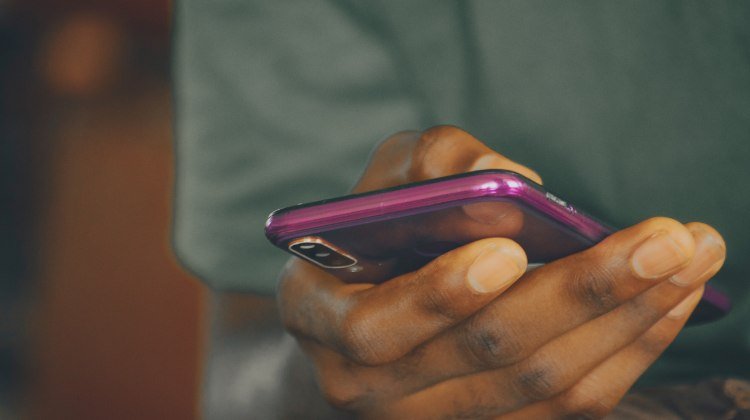
VA veteran text messages – you’ve probably heard about them. Like many veterans, you might have initially dismissed them as spam. After all, unsolicited texts promising benefits sound fishy, right? But hold on because these messages are the real deal – part of a significant shift in how the VA reaches out to veterans like you.
In the past, navigating the VA system often felt like battling through red tape. The VA has been making a conscious effort to change that by ditching the old, clunky methods and going digital. This includes using text messaging, a surprisingly effective way to reach millions of veterans, especially those who haven’t engaged with the VA before.
Table of Contents:
- Why is the VA Texting Veterans?
- Understanding VA Veteran Text Messages
- What This Means for You
- Conclusion
Why is the VA Texting Veterans?
The VA is on a mission to connect as many eligible veterans with their deserved benefits as possible. Think of it like this – the federal government allocated a massive budget to care for veterans. It’s the VA’s job to ensure that money is used.
This isn’t some heartless bureaucratic box-ticking exercise. It’s about ensuring veterans receive the support and care they’ve earned. These benefits, including VA health care, compensation, and education assistance, can be life-changing.
Many veterans don’t even know they’re eligible for all that’s available. Let’s be real – wading through the VA’s official website or enduring long wait times on the phone isn’t everyone’s idea of a good time. That’s where the VA veteran text messages come in – they offer a direct and convenient way to update you on benefits, resources, and even remind you about appointments. You can even receive VA prescriptions with the help of your care team.
Understanding VA Veteran Text Messages
The SMS text messages are generally short, to-the-point, and provide clear instructions. For example, you might get a text about the PACT Act and its health benefits, a reminder for an upcoming appointment, or updates on existing claims.
If you served in a specific campaign, such as Vietnam, Desert Storm, Afghanistan, or Iraq, the VA might send you targeted messages about benefits specific to your service period. What’s great is that, unlike a random spam message, these texts typically include links to the official VA.gov website for verification.
Are These Messages Legit?
You might be surprised to learn that these messages are not only legitimate but the outreach is working. More veterans are now signing up for and accessing their benefits. This has led to a notable jump in enrollments for VA care in recent years. So, when you get a text message that looks like it’s from the VA, don’t panic.
| Signs It’s a Legit VA Text | Signs It Might Be a Scam |
|---|---|
| Comes from a 5-6 digit shortcode, like the one the VA uses (468311). | Comes from a regular 10-digit mobile phone number. |
| Clearly identifies itself as being from the VA. | Uses vague language or tries to pressure you into clicking a link or giving personal info. |
| Provides links to the official VA website (VA.gov). | Directs you to a suspicious website or asks you to call a different number than the official VA hotlines. |
| Offers information but doesn’t ask for personal details like your Social Security Number. | Requests personal or financial information via text. |
Remember, when in doubt, play it safe. If a message raises any red flags, don’t hesitate to reach out to the VA directly through their official channels to confirm its authenticity.
How Texting Fits into a Larger Strategy
Texting veterans might seem unusual for a government agency, but this change in tactics reflects the VA’s broader shift towards better communication. They recognize that, for today’s tech-savvy veterans, accessible information is key.
They’ve also rolled out an extensive national ad campaign to raise awareness about often-overlooked benefits, such as no-cost memorial services and no-money-down mortgages for veterans. Along with streamlined online services through VA.gov, it seems like they’re trying to modernize their image and engage veterans actively, not reactively.
It’s an all-hands-on-deck situation urging veterans to connect with the services meant for them. For example, the VA offers helpful mental health care, which is sometimes covered under Medicare.
What This Means for You
VA Annie text messages might seem like a small change. However, they represent a more significant, proactive approach to veteran health care. If you receive one of these texts, don’t just delete it. Read it and consider looking into the benefits mentioned – you never know what you might be missing.
If in-person support feels like a barrier, it is good to know you have options. Consider trying a telehealth option. There are great benefits for veterans who are unable to meet face-to-face. You can read more about the benefits here in this helpful article: Your Absolute Guide to Accessible Online Therapy Virginia Services.
Conclusion
Ultimately, VA veteran text messages show the government trying new ways to fulfill its commitment to those who have served. This shift toward proactive, accessible communication using tools like text messaging hopefully signifies a brighter future for veterans seeking their hard-earned benefits. Remember, seeking support is not a sign of weakness, but strength. Utilize these new tools the VA provides to your benefit.